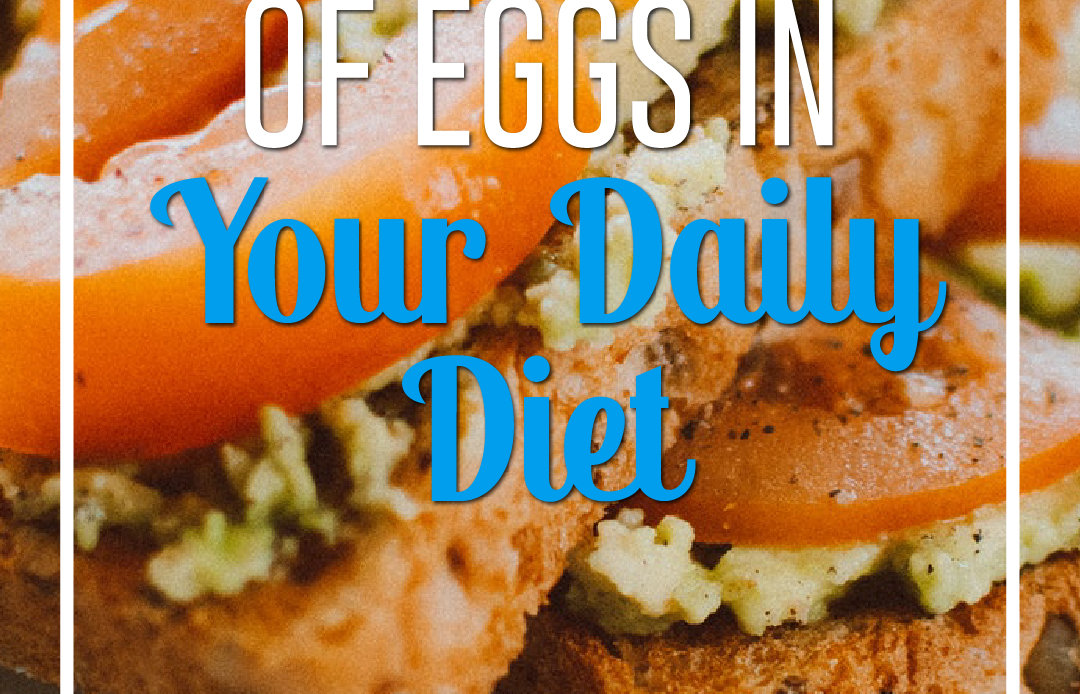What are the health benefits of eggs? Eggs have been getting a bad rap for years, but in actuality, they’re one of the most nutrient-rich foods on the planet. Eggs contain vitamins A, B, E, and K. They also contain proteins, healthy fats, and numerous trace nutrients that are vital for your health.
There is a historical controversy on the impact of eggs on our health, especially concerning cholesterol. But the latest research shows that eating eggs in moderation is necessary and healthy. Eggs have nutrients that lack in our modern diets.
Here are the benefits of eggs in your daily diet:
1. Raise Good Cholesterol (HDL)
HDL is an acronym for high-density lipoprotein, which is commonly referred to as ‘good’ cholesterol.
Having high levels of HDL lowers your risk of stroke, heart disease, and other health issues. Adding eggs to your diet is an excellent way of raising your HDL. Studies show that a daily intake of two increases your levels of HDL by 10%.
2. Packed with Choline Which is Great for Your Brain
Choline is a little known but essential nutrient that’s often bundled with B vitamins.
Choline takes part in building cell membranes and creating signaling membranes in your brain, among many other functions. Dietary surveys show that around 90 percent of Americans don’t get enough choline from their diets.
Whole eggs are a fantastic source of choline. One egg contains 100mg of this critical nutrient.
3. Great for Heart Health
LDL cholesterol is commonly known as ‘bad’ cholesterol.
It’s also known that elevated levels of LDL correlate with an increased possibility of heart disease. However, what’s not clear for most people is that LDL comes in a few subtypes that are based on the particle size.
LDL subtypes can be broadly categorized as those with small, dense, and large particles. Studies show that people with small and dense LDL particles are more predisposed to heart disease than those with large LDL particles.
Even though eggs slightly raise LDL cholesterol levels in some people, studies reveal that the LDL particles are altered from small and dense to large, which is better for our health.
4. Excellent for Eye Health
As we age, our eyesight tends to deteriorate. But there are numerous nutrients that can counteract many of these degenerative processes.
Lutein and zeaxanthin are the key nutrients that contribute to eye health. These two powerful antioxidants accumulate in your eyes’ retina.
Studies show that maintaining a diet that’s rich in Lutein and zeaxanthin helps reduce macular degeneration and cataracts, which are prevalent eye disorders.
Egg yolks are packed with large quantities of both Zeaxanthin and Lutein. A controlled study has shown that if you eat 1.5 eggs daily for four and a half weeks, the Lutein in your blood will increase by 28-50%, and zeaxanthin will increase by 114-142%.
It’s also important to note that eggs are rich in Vitamin A. Deficiency of Vitamin A is the world’s leading cause of blindness.
5. Provides Premium Quality Proteins
Proteins are the human body’s main building blocks. They build various molecules and tissues that serve both functional and structural purposes.
Consuming enough proteins is, therefore, vital for your health. But studies show that the current recommended levels of proteins are too low. Eggs are rich in proteins; a single egg is packed with 6 gram
Eggs also have a perfectly balanced ratio of essential amino acids, and so our bodies optimize the protein in eggs. A protein-rich diet can help increase muscle mass, shed weight, optimize bone health, and lower blood pressure.
6. Eggs May Reduce Risk of Heart Diseases
For decades, eggs have been cast as enemies of good health. It’s been claimed that the cholesterol in eggs is bad for heart health.
But many recent studies that have scrutinized the link between egg consumption and heart disease have found any correlation. A review of 17 studies that encompassed 263, 938 participants found no link between egg consumption and stroke or heart disease.
But some studies have noted that people with type 2 diabetes who consume eggs are much more predisposed to heart disease. But it’s not yet known whether it’s the eggs that increase the risk; studies can only establish a statistical association. But that doesn’t prove that eggs are the culprit.
Likely, people with diabetes who consume a lot of eggs are also less health-conscious. If your diet is low-carb, which is also the optimum diet for diabetics, including eggs in your diet can lead to an improvement in heart disease risk factors.
7. Helps in Weight Loss
Eggs are exceptionally filling. They are a protein-dense food and protein is the most filling macronutrient.
Eggs rank high on the Satiety Index, which is a scale that measures the ability of food to make you feel full and reduce the need for subsequent calorie intake.
A study of 30 overweight women who opted for eggs for breakfast instead of bagels, found that the participants felt fuller and this made them to automatically reduce the calorie intake for the one and a half days.
In another study, participants who adopted an egg breakfast in place of bagels lost weight over the eight weeks.
Eggs also add a few kilojoules to every nutrient they provide; a large egg has 315kj. When combined with whole grains and fruits or veggies, they make a complete meal that’s easy to prepare, readily available, and inexpensive. This makes eggs a vital tool for anyone who’s trying to lose weight.
8. Improves Nutrient Adequacy
Eggs contain high amounts of essential minerals like zinc, iron, and phosphorous. Zinc helps turn food into energy and bolsters your immune system.
Iron is essential for several processes; women particularly need plenty of it because of menstruation. Eggs are also packed with iodine, which helps make selenium and thyroid hormones.
The nutrient-dense nature of eggs makes them a key contributor to nutritious diets. In a study that compared a group that eats eggs with a group that doesn’t eat eggs found that those who didn’t consume eggs were more likely to be deficient in vitamins A, B12, and E. This research shows the importance of eggs in ensuring nutrient sufficiency.
9. Vital for a Healthy Pregnancy
Eggs are rich in Vitamin B9, which is also known as folic acid. Folic acid is instrumental in the creation of red blood and the fetus’s neural tube. It thus helps prevent congenital disabilities like spina bifida.
10. Great for Hair, Nail and Liver Health
Your nails and hair reflect any biochemical imbalances or deficiencies in your body. Eggs are great for your nails and hair because of their rich content of vitamins, minerals, and sulfur-containing amino acids.
People are sulfur, zinc, vitamin A or vitamin A deficient report faster hair growth after they’ve started eating eggs.
Besides, Biotin, proteins, and vitamin B12 help strengthen your skin and hair. And phospholipids in the eggs help detox your liver.
Extra Benefits of Eggs for Health Include:
Protects Your Bones
Eggs are among the few sources of vitamin D. Vitamin D facilitates the absorption of calcium and thus helps maintain optimum bone health. A combination of eggs and dairy products can help you prevent osteoporosis.
Helps Tackle Iron Deficiency Issues
People who are iron deficient experience vague symptoms like irritability, headaches, and tiredness. Iron carries oxygen in your blood as well as plays a crucial role in energy metabolism and immunity.
The iron in egg yolk is more absorbable and usable compared to other forms of food iron. It’s also more absorbable than the iron in nearly all supplements.
Pastured or Omega-3 Eggs Lower Triglycerides
Eating Eggs matters, but where your eggs sourced from also matters. The nutrient composition of eggs varies depending on what the chickens are fed and how they’re raised.
Eggs from hens that were fed omega-3-rich feed and raised on pasture usually have higher levels of omega-3 fatty acids.
Omega-3 fatty acids reduce the levels of triglycerides in your blood. Triglycerides are key risk factors for conditions like heart disease.
Try These Types of Eggs
Quail Eggs
What are the health benefits of quail eggs? They have similar qualities and flavor to chicken eggs, but they’re petite in size, pretty, and have a speckled shell, which has made them a hit in gourmet cooking.
Duck eggs
Ducks eggs look similar to chicken eggs, but they’re larger. They are more protein and nutrient-rich than chicken eggs, but their fat content is also higher.
The Bottomline on the Benefits of Eggs in Daily Diet
Whether you want to adopt a more nutritious diet or shed off some weight, eating three eggs every day is perfectly safe. And, there is no proof that eating more than three eggs is harmful – it’s just that’s an ‘unexplored territory’ which hasn’t been adequately studied yet.
Eggs are one of nature’s most perfect foods. They have a bit of every vital nutrient. Besides, they are easy to prepare cheap, tasty and go with almost all cuisines.







